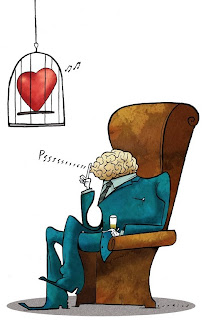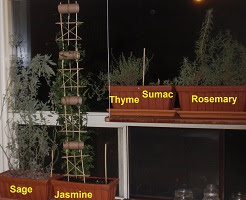Appendices:1. Robo-call accusations raise uncomfortable questions, Chantal Hébert, February 27 2012.
2. The oilsands are a symptom of the bigger problem of our dependence on fossil fuels, Andrew Weaver, February 21 2012.
3. Media coverage of oilsands prompts scientists’ rebuke, James Munson, February 22 2012.
4. Weaver study offers fossil fuels warning, David Suzuki & Ian Hanington, February 29 2012.
5. Point missed on oilsands report, say researchers, Mike De Souza, February 22 2012.
Robo-call accusations raise uncomfortable questions, Chantal Hébert, February 27 2012.
MONTREAL—If there is a tactical scheme behind the so-called voter suppression scandal, it is not readily apparent in the list of allegedly abused ridings put forward by the opposition parties.
Only a small fraction of the 50 federal seats where the margin of victory was less than 5 per cent last May — and where presumably every vote counted — are alleged to have been targeted by fraudulent calls.
Liberal ridings such as Brampton-Springdale and Ajax-Pickering that were known to be high on the Conservatives’ to-win list (and that they did win) were apparently not plagued by such calls.
On the other hand, a substantial number of the three dozen ridings on the opposition list were safe Conservative seats.
Take the Ontario riding of Wellington-Halton Hills. On May 2, former Conservative minister Michael Chong kept the seat with a majority of 26,000 and 63 per cent of the vote. He clearly needed no help to get re-elected.
Chong has emerged as one of the least partisan voices in Parliament. He resigned from Stephen Harper’s first cabinet over a matter of principle. It is hard to imagine that he would have countenanced party-sanctioned dirty tricks in his riding.
In Simcoe-Grey, the Conservatives won by more than 20,000 votes and the aggrieved Liberals ran fourth, behind the NDP and former Conservative incumbent Helena Guergis.
In the Toronto riding of Parkdale-High Park, both opposition parties have complained that their supporters were victims of early morning or late night calls from people misrepresenting themselves as volunteers for their campaigns. In Davenport, the NDP reported the same complaint.
The Conservatives did not really have a dog in either fight. They ran a distant third in both ridings.
And then did Justice Minister Rob Nicholson (majority 16,000 +) or Conservative incumbent Rick Dykstra (majority 13,000 +) seriously need a dose of dark arts to hang on their Niagara Falls and St. Catharines ridings?
A Machiavellian mastermind could always have orchestrated fraudulent calls to a host of ridings where such tricks were unlikely to affect the outcome for or against the Conservatives just to throw anyone off the scent of an orchestrated pattern.
But that sounds like a high-risk investment for a relatively low yield. The Conservative vote is not noticeably more vigorous in the ridings where the opposition is alleging that fraudulent calls took place than in comparable ones.
That is not to say that something is not rotten about the state of Canada’s electoral democracy or that the ruling Conservatives have no responsibility in that deteriorated state. But they are not alone.
Under Stephen Harper, the Conservatives have pushed the line of what is considered fair game in partisan politics. It now basically sits on the divide between what is legal and what is not. The evidence suggests that the closer parties play to that line, the greater the chances that some of their partisans will cross it.
The Liberals just learned that the hard way when it was found that one of their staffers was responsible for leaking details of Public Safety Minister Vic Toews’ private life on Twitter.
Too often, the opposition has been prompt to follow the Conservatives down the same slippery slope. On that score, the addiction of all federal parties to robo-calling is a telling development.
A technique originally used to dispense useful information to prospective supporters is being turned into an instrument of harassment.
When MP Lise St-Denis left the NDP to sit as a Liberal in January, the New Democrats hired a firm to robo-call her constituents of Saint-Maurice-Champlain. The NDP was not identified as the sponsor of the calls and recipients were not told that if they pressed 1 to signal their displeasure with St-Denis, they would be re-directed to her riding office — where they swamped the phone lines for a number of days.
There is nothing illegal about the ploy and NDP strategists profess to be totally comfortable with it. But should it have its place an ethically moral political environment?
Throwing rocks at the Conservatives with one hand will achieve little for the common good if the opposition parties are busy expanding their own glass houses with the other.
The oilsands are a symptom of the bigger problem of our dependence on fossil fuels, Andrew Weaver, February 21 2012.
Back in September the Keystone XL pipeline controversy was at its peak. Proponents of the pipeline were entrenched in their views that the suggested route was the only viable one. Opponents brought forward myriad concerns. Nebraskan ranchers pointed out the absurdity of building a new pipeline over the Ogallala Aquifer — the water source of much of the U.S. agricultural belt. The National Congress of American Indians and Canadian First Nations brought forward compelling arguments that the pipeline jeopardized the potential health of their communities and resources. Others argued that it might be “game over” as far as global warming was concerned.
It was in the midst of this controversy that Neil Swart, a Ph.D. student in my lab, and I became engaged in a discussion as to the global warming potential of the oil in the Alberta tarsands. Our hunch was that it was big. We had heard the rhetoric and we wanted to undertake a quantitative assessment as to its veracity. On Sept. 28, we submitted the results of our analysis for publication and after five months working its way through the peer review paper, the final article appeared in Nature Climate Change on Sunday. We received no funding for this research. It was initiated exclusively out of curiosity.
We asked how much global warming would occur if we completely burned a variety of fossil fuel resources. Here is what we calculated:
• tarsands under active development: 0.01°C.
• economically viable tarsands reserve: 0.03°C.
• entire tarsands oil in place, which includes the uneconomical and the economical resource: 0.36°C.
• total unconventional natural gas resource base: 2.86°C.
• total coal resource base: 14.8°C.
Our overarching conclusion is that as a society, we will live or die by our future consumption of coal. The idea that we’re going to somehow run out of coal, natural gas and other fossil fuels is misplaced. We’ll run out of our ability to live on the planet long before we run out of them.
Some might point out that our published calculations do not account for the additional greenhouse gases arising from the extraction, transportation and refining of the tarsand resource. This was deliberate.
The so-called “wells to wheels” approach to tarsands mining includes the natural gas, diesel and coal emissions that arise during extraction and refining, together with transportation of the oil. However, these would come from the other resource pools and shouldn’t be double-counted. The relative mix of such fuels would obviously change in the future as well. We wanted to be consistent to ensure that emissions and subsequent warming from all resources were calculated the same way.
Nevertheless, if you account for the additional “wells to wheels” emissions, our estimates of potential global warming from the tarsands would increase by about 20 per cent. But even this is uncertain. If all refining, extraction and transportation were done using energy from renewable or nuclear power, the number would be close to zero. If it were all done using electricity from inefficient coal-fired generators, it would be higher. Once more the key message is clear. We will live or die by our future consumption of coal. And if everyone in the world had similar per-capita emissions as North Americans, it will be sooner rather than later.
I have always said that the tarsands are a symptom of a bigger problem. The bigger problem is our societal dependence on fossil fuels. As we use up the easy-to-find resources, we start going to more extreme measures to access what is left. The result is increasingly environmentally hazardous approaches to extraction.
None of this discussion takes away from the profound ecological and social concerns involved with the development of the tarsands. I am convinced that the Canadian government could do a better job of regulating the industry to ensure that these ecological and social concerns are properly addressed. In addition, the industry represents the single biggest growing sector of Canadian greenhouse gas emissions.
The atmosphere has traditionally been viewed as an unregulated dumping ground. There is no cost associated with emitting greenhouse gases.
Economists call this a market failure. To correct this failure a price is needed on emissions. This allows individuals and businesses to find the most cost-effective means of reducing their own emissions. In fact, the oil and gas industry has repeatedly called upon the federal government to introduce such emissions pricing. They want some certainty as to “the rules” under which they must operate.
It would be a huge mistake to interpret our results as some kind of a “get out of jail free” card for the tarsands. While coal is the greatest threat to the climate globally, the tarsands remain the largest source of greenhouse gas emission growth in Canada and are the single largest reason Canada is failing to meet its international climate commitments and failing to be a climate leader. The world needs to transition away from fossil fuels. That means coal, unconventional gas and unconventional oil all need to be addressed.
Andrew Weaver is a professor and Canada Research Chair in Climate Modelling and Analysis in the School of Earth and Ocean Sciences, University of Victoria. He was a lead author in the UN second, third, fourth and ongoing fifth scientific assessments of climate change.
Media coverage of oilsands prompts scientists’ rebuke, James Munson, February 22 2012.
How does the Canadian media handle a complicated science story? Not well, if this week’s coverage of a study on the carbon emissions of Alberta’s oilsands is any indication.
Andrew Weaver and Neil Swart, two University of Victoria scientists, authored a study that compared the carbon emissions of different fossil fuels if they were completely extracted from the ground. The study found the Albertan oilsands to be less destructive to the climate than coal. That news prompted a media flurry so significant that by midweek, the scientists were reaching out in the media to correct the record.
Weaver and Swart’s study was first published Sunday in the journal
Nature Climate Change, a partner of the more well-known journal
Nature, and was picked up by Bob Weber of the
Canadian Press. The scoop, though it balanced the new research with the scientists’ view that all fossil fuel dependence should be reduced, frames the news against the public’s impression of the oil sands as a climate change disaster.
One of the world’s top climate scientists has calculated that emissions from Alberta’s oilsands are unlikely to make a big difference to global warming and that the real threat to the planet comes from burning coal.
“I was surprised by the results of our analysis,” said Andrew Weaver, a University of Victoria climate modeller, who has been a lead author on two reports from the United Nations Intergovernmental Panel on Climate Change. “I thought (the threat of oilsands emissions) was larger than it was.”
The story quickly appeared on other major media outlets, including the CBC.
Edmonton Journal columnist Paula Simons, who reached the scientists and wrote a story the next day, described the already-fiery discourse over the study in her column, “UVic’s Andrew Weaver Says Impact of Burning All Alberta’s Oilsands Negligible.”
Since the provocative paper was published on Sunday afternoon, the phones at the University of Victoria have been ringing off the hook, with calls from journalists around the world. In the blogosphere, Swart and Weaver’s paper has been embraced by some oilsands advocates as validation and endorsement of oilsands production, and poo-poo’d by others as old news. Meanwhile, some climate change activists have condemned the findings, with some even suggesting that Weaver has been bought off by “Big Oil.” Not everyone has bothered to read the paper, which takes the more nuanced view that while the oilsands add little to the world’s carbon footprint, they are a significant enabler of fossil fuel addiction.
The story had already taken off in many people’s minds as a public relations exercise — a science-based counterpoint to environmentalists trying to stop the oilsands.
The
Globe and Mail picked up the story and framed it as a climate change game-changer ahead of Thursday’s vote in Brussels on the EU fuel-quality directive that would limit oilsands fuel from entering Europe — a vote that before the report seemed all too likely to go through.
... the EU vote comes against a landscape newly shifted by research showing that on a global scale, oilsands emissions are not the dark-shirted villain some have made them out to be. That research, published in the journal Nature and co-authored by one of Canada’s most respected climate scientists, throws a wrench into the debate over an energy source whose reputed “dirtiness” has sparked fiery debate around the world.
While the story repeated the fact that both authors oppose the expansion of the oilsands and call for a switch away from fossil fuels, pro-oilsands players were already counting the study as a feather in their cap.
Travis Davies, a spokesman for the Canadian Association of Petroleum Producers, said it is “important” that analyses like Dr. Weaver’s are being done, since it might help calm “the inflamed rhetoric from the other side.”
On Tuesday, Postmedia published a story that put far more priority on Weaver and Swart’s opposition to the oilsands. The authors make that clear in the second paragraph, after they state the study’s findings that coal causes more emissions than oilsands in the lede.
Still, that’s no reason to endorse the Keystone XL or Northern Gateway pipelines, say two Canadian climate experts in a provocative study released on the weekend.
On the same day, Andrew Weaver wrote his own op-ed in the
Toronto Star. Free of the rhetorical tricks journalists use to make a story lively, he dryly explains the study’s findings, explaining in detail the context of the scientists’ curiosity (the heated debate over the Keystone XL pipeline) and the study’s limitations.
While Weaver admits the findings don’t conform with what the loudest oilsands opponents have claimed, he doesn’t seem to suggest the findings have changed the oilsands debate for scientists like him.
While coal is the greatest threat to the climate globally, the tarsands remain the largest source of greenhouse gas emission growth in Canada and are the single largest reason Canada is failing to meet its international climate commitments and failing to be a climate leader. The world needs to transition away from fossil fuels. That means coal, unconventional gas and unconventional oil all need to be addressed.
On Wednesday [today], the most explicit attempt to quell any misunderstandings in the media was published in a second Postmedia story, written by Mike De Souza, the wire service’s go-to guy on oilsands reporting. In the article, entitled “Point Missed on Oilsands Report: Experts,” the story is no longer the science at all, but its optics.
It begins:
Two Canadian climate change scientists from the University of Victoria say the public reaction to their recently published commentary has missed their key message: that all forms of fossil fuels, including the oilsands and coal, must be regulated for the world to avoid dangerous global warming.
“Much of the way this has been reported is (through) a type of view that oilsands are good and coal is bad,” said climate scientist Neil Swart, who co-wrote the study with fellow climatologist Andrew Weaver. “From my perspective, that was not the point. … The point here is, we need a rapid transition to renewable (energy), and avoid committing to long-term fossil fuel use if we are to get within the limits” of reducing global warming to less than 2 degrees Celsius.
As the EU heads into a debate over its fuel-quality directive tomorrow, it seems the discussion here in Canada over the oilsands is still far from settled.
Weaver study offers fossil fuels warning, David Suzuki & Ian Hanington, February 29 2012.
It was inevitable that climate change deniers and some oil industry promoters would misinterpret a study by scientist Andrew Weaver before reading beyond the headlines.
A letter in the Calgary Herald actually claimed that “Weaver’s revelation … raises even more skepticism about the entire science behind global warming.” The writer went on to argue that the report by University of Victoria climate scientist Weaver and PhD student Neil Swart is an “awakening for David Suzuki and his environmental followers.”
It’s typical of the nonsense people who understand science have to put up with every day. The study, published in Nature, says the opposite.
Weaver and Swart set out to answer a simple question: “How much global warming would occur if we completely burned a variety of fossil fuel resources?” Their conclusion that burning all the coal or all the gas from the entire world’s resource bases would raise global average temperatures more than burning all the Alberta tar sands reserves is hardly a surprise.
What is surprising is their finding that emissions from burning all the economically viable oil from the tar sands would only contribute to a 0.03°C rise in world temperatures, and burning the entire tar sands oil in place would add 0.36°C. That may not seem like much, but we need to put it in context.
First, the study looked only at the emissions from burning the fuels and not from extracting, refining, or transporting them. The report’s authors explain that these additional emissions “would come from the other resource pools and shouldn’t be double-counted.”
If we are to avoid a 2°C increase in global temperatures, each person in the world would be allocated 80 tonnes of emissions over the next 50 years. The emissions from burning all the tar sands oil that is now economically viable (the reserves) would represent 64 tonnes of carbon for each of the 340 million people in the U.S. and Canada – about 75 per cent of the U.S. and Canada’s global per capita allocation. If we include emissions from the extraction, it rises to 90 per cent or more.
The study doesn’t consider any other environmental consequences of the tar sands either, from water use and pollution to destruction of boreal habitat.
As I’ve said before, we’re not going to stop using oil overnight, so we will continue to use tar sands products, at least in the short to medium term. But the best ways to limit environmental impacts are to slow down and to ensure the highest environmental standards are met and that we are getting maximum value for the oil to which all Canadians have a right.
As Weaver and Swart conclude: “If North American and international policymakers wish to limit global warming to less than 2 C they will clearly need to put in place measures that ensure a rapid transition of global energy systems to non-greenhouse-gas-emitting sources, while avoiding commitments to new infrastructure supporting dependence on fossil fuels.”
Written with contributions from David Suzuki Foundation editorial and communications specialist Ian Hanington.
Point missed on oilsands report, say researchers, Mike De Souza, February 22 2012.
Team calls for rapid transition to renewable energy Two Canadian climate change scientists from the University of Victoria say the public reaction to their recently published commentary has missed their key message: that all forms of fossil fuels, including the oilsands and coal, must be regulated for the world to avoid dangerous global warming.
Two Canadian climate change scientists from the University of Victoria say the public reaction to their recently published commentary has missed their key message: that all forms of fossil fuels, including the oilsands and coal, must be regulated for the world to avoid dangerous global warming.
"Much of the way this has been reported is (through) a type of view that oilsands are good and coal is bad," said climate scientist Neil Swart, who co-wrote the study with fellow climatologist Andrew Weaver. "From my perspective, that was not the point. . . . The point here is, we need a rapid transition to renewable (energy), and avoid committing to long-term fossil fuel use if we are to get within the limits" of reducing global warming to less than 2 degrees Celsius.
The commentary, published in the British scientific journal Nature Climate Change, estimated the effect of consuming the fuel from oilsands deposits - without factoring in greenhouse gas emissions associated with extraction and production - would be far less harmful to the planet's atmosphere than consuming all of the world's coal resources.
"The conclusions of a credible climate scientist with access to good data are very different than some of the rhetoric we've heard from Hollywood celebrities of late," said Travis Davies, a spokesman from the Canadian Association of Petroleum Producers.
"However, it clearly doesn't absolve industry from what it needs to do: (To) continue to improve environmental performance broadly, and demonstrate that improvement to Canadians and our customers . . . in terms of GHG (greenhouse gas) emissions, as well as water, land and tailings facilities."
Swart and Weaver also note that growth in oilsands and recent debates over a major pipeline expansion project in the United States represent a symptom of the planet's unhealthy dependence on fossil fuels. The commentary said policy-makers in North America and Europe must avoid major infrastructure of this nature since it is pushing the planet dangerously close to more than 2 C of average global temperatures above pre-industrial levels, which is considered to be a threshold of dramatic changes in global ecosystems.
Swart also said their estimates revealed that the relative impact of the oilsands on the climate, per unit of production, would push the average Canadian to 75 per cent of what would be considered their maximum allowable carbon dioxide footprint for an entire lifetime. In other words, this would mean that after factoring in oilsands emissions, the average Canadian would not have much room left to consume fossil fuels for their other energy needs if he or she wanted to do their fair share of reductions when compared with citizens from other countries, Swart explained.
"If we go down this path, the amount of warming will be massive," Swart said.
Governments from around the world have agreed that scientific evidence shows that humans are causing global warming through land-use changes and the burning of fossil fuels, but that it is possible to avoid dangerous impacts of climate change by dramatically cutting levels of greenhouse gas emissions that are trapping heat in the atmosphere.
 Bella Bella Community School - April 1st at 4pm to April 3rd at 4pm.
Bella Bella Community School - April 1st at 4pm to April 3rd at 4pm.
 Read the February 24 press release. Watch and listen to this video (with contact information). Visit the Bella Bella Community School website.
Read the February 24 press release. Watch and listen to this video (with contact information). Visit the Bella Bella Community School website. Please forward this news widely.
Please forward this news widely.


 And a short video: Toronto in solidarity with Waglisla (Bella Bella) fast to protest Enbridge pipeline.
And a short video: Toronto in solidarity with Waglisla (Bella Bella) fast to protest Enbridge pipeline.




 As reported in the Guardian:
As reported in the Guardian: ... and on the Danish Ministry of Climate, Energy and Building website: Martin Lidegaard: DK makes energy policy history, and DK Energy Agreement, March 22 2012.
... and on the Danish Ministry of Climate, Energy and Building website: Martin Lidegaard: DK makes energy policy history, and DK Energy Agreement, March 22 2012. A short video (5 minutes) of a speech from 2011 (the only one I could find in English).
A short video (5 minutes) of a speech from 2011 (the only one I could find in English).
















 I'm not, literally, actually, a sumac (yet) and I hardly notice.
I'm not, literally, actually, a sumac (yet) and I hardly notice.








 'Tensile' from Latin tendere, to stretch; 'attenuate' from tenuare, to make thin (it looked like they might've had the same root).
'Tensile' from Latin tendere, to stretch; 'attenuate' from tenuare, to make thin (it looked like they might've had the same root).







 The single comment from the UVic climate-scientists about remarks on 'The Alberta oil sands and climate' article in
The single comment from the UVic climate-scientists about remarks on 'The Alberta oil sands and climate' article in 












